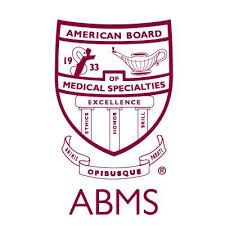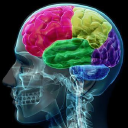
Join to View Full Profile
55 Lake Ave NWorcester, MA 01655
Phone+1 508-856-8134
Fax+1 508-856-8145
Dr. Ginns is on Doximity
As a Doximity member you'll join over two million verified healthcare professionals in a private, secure network.
- Gain access to free telehealth tools, such as our “call shielding” and one-way patient texting.
- Connect with colleagues in the same hospital or clinic.
- Read the latest clinical news, personalized to your specialty.
Summary
- Dr. Edward Ginns is a board certified neurologist in Worcester, MA at UMass Memorial Medical Center. He received his medical degree from Johns Hopkins University and has been in practice for over 30 years. He specializes in lysosomal storage disorders, with a special focus on Gaucher disease.
Education & Training
 Montefiore Medical Center/Albert Einstein College of MedicineResidency, Neurology, 1977 - 1980
Montefiore Medical Center/Albert Einstein College of MedicineResidency, Neurology, 1977 - 1980 Johns Hopkins University School of MedicineClass of 1977
Johns Hopkins University School of MedicineClass of 1977
Certifications & Licensure
 MA State Medical License 2000 - 2026
MA State Medical License 2000 - 2026 MD State Medical License 1980 - 2026
MD State Medical License 1980 - 2026 NY State Medical License 1977 - 2026
NY State Medical License 1977 - 2026 American Board of Psychiatry and Neurology Neurology
American Board of Psychiatry and Neurology Neurology
Publications & Presentations
PubMed
- 10 citationsGaucher disease in the COVID-19 pandemic environment: The good, the bad and the unknown.Edward I. Ginns, Emory Ryan, Ellen Sidransky
Molecular Genetics and Metabolism. 2021-02-24 - 19 citationsGaucher disease and SARS-CoV-2 infection: Emerging management challenges.Pramod K. Mistry, Manisha Balwani, Deborah Barbouth, T. Andrew Burrow, Edward I. Ginns
Molecular Genetics and Metabolism. 2020-07-01 - 26 citationsMutations in the Kinesin-2 Motor KIF3B Cause an Autosomal-Dominant Ciliopathy.Benjamin Cogné, Xenia Latypova, Lokuliyanage Dona Samudita Senaratne, L. Martin, Daniel C. Koboldt
American Journal of Human Genetics. 2020-06-04
Press Mentions
 Studying Compulsive Behavior in Dogs May Help Improve OCD Treatments for PeopleFebruary 29th, 2016
Studying Compulsive Behavior in Dogs May Help Improve OCD Treatments for PeopleFebruary 29th, 2016 Newly Identified Genomic Causes of Severe Compulsive Behavior in Dogs Could Further Understanding of Human OCDFebruary 28th, 2016
Newly Identified Genomic Causes of Severe Compulsive Behavior in Dogs Could Further Understanding of Human OCDFebruary 28th, 2016 American Humane and TGen Uncover Genetic Basis of Obsessive-Compulsive Disorder in DogsFebruary 10th, 2016
American Humane and TGen Uncover Genetic Basis of Obsessive-Compulsive Disorder in DogsFebruary 10th, 2016
Viewing the full profile is available to verified healthcare professionals only.
Find your profile and take control of your online presence:









